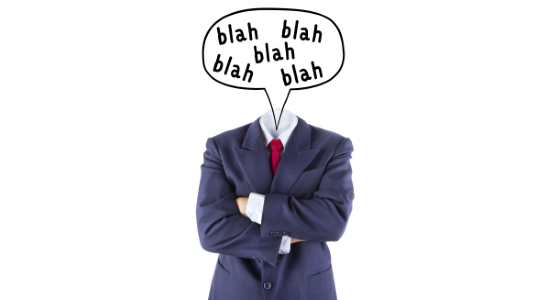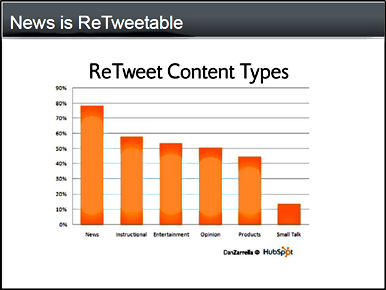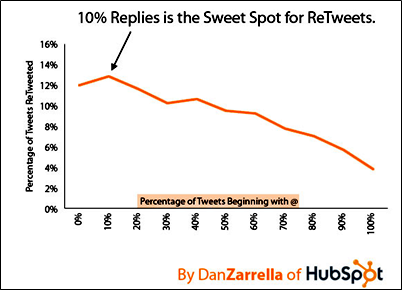Skip product promos, irrelevant twaddle
Which of these Facebook posts is most likely to increase engagement?

“We’re pleased to introduce our latest WhatzIts.”
“Try these three ways to build your business using WhatzIts.”
“How ’bout dem Bears?”
If you guessed the second one, you’re right, according to Facebook’s own research.
For the study, Facebook researchers looked at more than 1,200 posts from 23 brands. Then they ran the posts through a quantitative model that predicts which posts will generate more engagement — aka likes, comments and shares.
Brand-related posts perform best, the researchers found. But not all brand-related posts: Product and service promotions didn’t fare well in the study.
So:
Don’t go off brand.
Non-brand-related posts — “Hang in there everybody. Monday will be over before we know it!” — don’t engage fans very well, either.
“Data from Facebook itself tell us that what looks good on the social-media guru’s presentation deck isn’t the best approach for making Facebook work for the brand.”
— Matt Creamer, in AdAge
“Among the weirdness Facebook’s existence has loosed upon the world is the idea that it’s OK, and perhaps even good business, for brands to sidle up and give you verbal balm for your case of the Mondays, ask for predictions on the big game and offer random thoughts on things that have not a whit to do with their product or service,” writes Matt Creamer in AdAge.
“The touchy-feely strategy is meant to be conversational — human, even. But new data from Facebook itself tell us that what looks good on the social-media guru’s presentation deck isn’t the best approach for making Facebook work for the brand.”
2. Avoid small talk.
Small talk performs poorly on Twitter, too.
Small talk is the type of content least likely to be retweeted (PDF), according to research by viral marketing scientist Dan Zarrella.

Here’s how often six key kinds of content get shared on Twitter:
- News: 78% (FYI: This is for CNN and the BBC. They’re not looking for urgent updates about your Widget 6.3.7.)
- How-to information: 58%
- Entertainment: 53%
- Opinion: 50%
- Products: 45%
- Small talk: 12%
Want more retweets? Pack blog posts and status updates with tips and techniques.
3. Avoid too much chatting.
Tweeters who send a lot of @ replies are less likely to get retweeted than those who chit-chat less, according to another study by Zarrella. For this study, he analyzed the percentage of “@” replies to find the effect of conversing on Twitter results.

How much conversation is enough? Aim for about 10% “@” replies among your tweets.
“It makes sense when you think about it,” Zarrella writes. “I’m much more likely to retweet an interesting piece of content that you’ve posted than a bit of Twitter chit-chat, especially when that chit-chat is part of an ongoing conversation of which I’m not a part.”
4. Don’t answer ‘What are you doing?’
What are you doing? That question has launched a gazillion tweets. Turns out your Twitter followers don’t really want to know.
In another study, Zarella analyzed his database of more than 30 million retweets, comparing them to a sample of more than 2 million random tweets.
The result: His list of the 20 least retweetable words:
- Game
- Going
- Haha
- Lol
- But
- Watching
- Work
- Home
- Night
- Bed
- Well
- Sleep
- Gonna
- Hey
- Tired
- Tomorrow
- Some
- Back
- Bored
- Listening
What do you notice about these words?
Hey! I’m watching the webinar while listening to the game. Haha!
I’m bored at work, so I’m going home. Lol. I’ll be back tomorrow.
I’m tired. Gonna go to bed and get some sleep. Night! Sleep well!
Nobody wants to know what you’re doing! So stop me-forming!
Instead of telling your followers what you’re eating for breakfast, recommend a great blog post or article.
___
Sources: Matt Creamer, “Facebook to Brands: You’re Posting Stuff Wrong,” AdAge, May 7, 2012
Dan Zarrella, “The Science of ReTweets,” HubSpot
Dan Zarrella, “What percentage of your tweets should be links or replies,” January 11, 2012
Dan Zarrella, “The 20 least retweetable words,” August 25, 2009

Leave a Reply